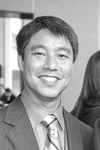
David Inoue
While most of the news from the courts has been the leaked decision from the Supreme Court regarding the likely overturning of Roe v. Wade and Planned Parenthood v. Casey, the lower federal courts have weighed in on two other public health issues with decisions that will likely reach the Supreme Court as well.
On April 18, Florida District Judge Kathryn Kimball Mizelle issued a decision blocking the government’s ability to impose mask mandates, stating the CDC exceeded the authority vested by Title 42 of the Public Health Act and also violated the Administrative Procedures Act, which requires public comment of proposed regulations.
The history of masks throughout the pandemic has admittedly been confusing. Initially, the recommendation was that masks be reserved for health care workers and traditional guidance that masks were unnecessary unless someone was symptomatic. Once we learned asymptomatic transmission was possible, guidance was quickly changed to recommend masks for everyone. This was not a failure of public health, but a changing of guidance based on changing information about a newly discovered disease.
At this time, Covid remains present within our community and continues to spread widely. It is not the time to lift a mask mandate that remains a key strategy to prevent the spread of Covid.
However, the lifting of the mandate was met with soon-to-be posted videos of airline passengers gleefully removing and throwing away their masks. Visiting a restaurant or any public space now places mask wearers in the minority. Clearly, the mask mandate is not something people liked, but was it protective?
On the other hand, we have been excluding and expelling asylum seekers under the misguided policy that this would protect our country from the transmission of Covid from increased immigration.
Those who continue to support Title 42 expulsions and exclusions do not attempt to make a public health argument for keeping the policy in place. Most often, claims are that lifting Title 42 will lead to a flood of immigration that will overwhelm border states and related social services.
On May 20, Louisiana-based District Judge Robert R. Summerhays issued an order blocking the discontinuation use of Title 42, which had been used to block immigration due to the Covid pandemic. Title 42 gives the government the power to restrict immigration in the event of a public health emergency to prevent the spread of communicable disease and was established in authority by the Public Health Act of 1944.
It is inarguable that our immigration system is broken, but Title 42 is not immigration policy, it is public health policy and not intended to be a means to limit people entering our country. As I have argued previously elsewhere, implementation of Title 42 under the false pretense of addressing a public health emergency is no different from Japanese American exclusion being enacted under the false pretense of a national security threat.
As a result of Judge Summerhays’ ruling, we will continue to exclude immigrants from our country under the supposed need of preventing the spread of Covid, but if we are no longer required to wear masks, is there really a threat?
The courts have stepped in to assert that the health emergency is not justification to maintain mask mandates, yet are also sending the message that the public health emergency should remain justification to enact immigration policy.
Ultimately, it is not the place of the courts to substitute legal arguments that supersede the need to respond to an emergency situation. We have seen this logic used previously to give the government wide latitude when questions of national security arise.
Ultimately, it must be the public health physicians, scientists and other experts who should be determining public health policy. While it is important to question if a threat exists, public health or otherwise, the courts must remain consistent in allowing the government to respond to threats to our country: foreign, domestic and, now more than ever, disease.
David Inoue is executive director of the JACL. He is based in the organization’s Washington, D.C., office.



